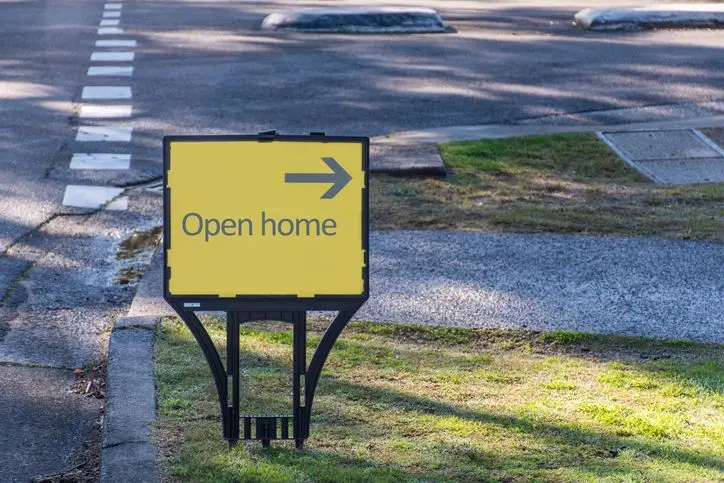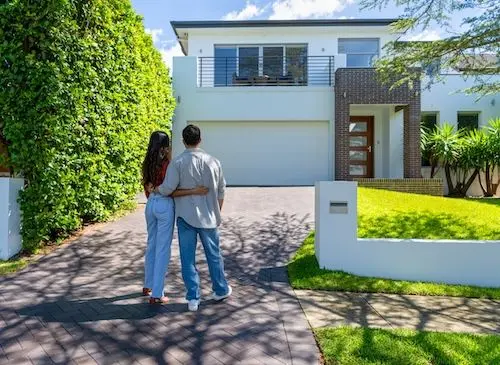
How to choose the right agent to sell your home
Finding the right agent for you can make all the difference when selling.

Selling a home is a big deal—financially, emotionally, and logistically. Whether you’re upsizing, downsizing, or moving on for a fresh start, getting it right can make a huge difference to your final sale price and experience. The NSW property market moves fast, and with real estate fees, legal requirements, and marketing strategies to consider, it’s important to go in with a solid game plan.
One of the biggest considerations when selling a home is cost. Real estate agent fees in NSW typically range from 1.5% to 3.5% of the sale price, but this varies depending on your location, property value, and the agent you choose. You can use our Commissions Calculator to see what the average commission rate in your suburb is.
In addition to commission, budget for marketing, conveyancing, professional staging, and government fees like stamp duty (for buyers) and capital gains tax (for investors). You can use our property selling costs calculator to get an estimate of the costs involved.
Read the full guide on how to find the right agent to sell your home.

Please select your suburb from the drop down
Use our handy selling calculator to crunch the numbers and get an estimate.
In NSW, properties are usually sold through auction or private treaty (sale by negotiation). Auctions create urgency and competition, which can push the price higher—especially in high-demand areas like inner-city Sydney or the Inner West. Private treaty sales, on the other hand, offer more flexibility and control over the price and conditions. The best method depends on market trends, property type, and your personal selling goals.
First impressions matter. In a competitive market, well-presented homes attract more buyers and better offers. Consider small upgrades like fresh paint, minor repairs, and decluttering to maximise appeal. Professional photography and home staging can also make a big difference in how your property stands out online.
Read the full guide on how to prepare your property for sale.
One of the most important decisions to make when it comes to selling is how to price your property for the best result. You can start to get an idea of what your property is worth by seeing recent property sales in your suburb and getting a property value estimate online.
It’s important that you work with your real estate agent to determine a competitive asking price if you’re selling through private treaty, or a reasonable reserve price if you’re selling through auction. A price that's too high can deter buyers, while the right pricing strategy can attract strong interest and lead to better offers. Striking the right balance is key.
Next, work with your agent to develop a marketing strategy. The cost for marketing your property will depend on factors such as your location and the price bracket your property is in.
Your marketing strategy may include:
Selling a home in NSW comes with legal obligations. In terms of forms and documents required, you’ll need a contract of sale prepared by a conveyancer or solicitor before you list. If your home is an investment property, you may also need to factor in capital gains tax (CGT).
The cooling-off period when selling property through private treaty is usually 5 business days. It starts when you exchange contracts and ends 5 business days later at 5pm. During this time, the buyer can change their mind.
However, the cooling-off period can be extended or reduced as long as all parties agree. Buyers can waive the cooling-off period with a 66W certificate.
Properties sold at auction or on the same day as auction don’t have a cooling-off period.
According to NSW Fair Trading, after an offer is accepted, settlement usually takes around six weeks.
Read more on settlement and how to negotiate a settlement date.

Finding the right agent for you can make all the difference when selling.

From obvious expenses to hidden costs, get the full rundown of what's involved.

See expert predictions, and current pros and cons to help you decide.

Please select your suburb from the drop down
Remove the guesswork. Use OpenAgent to help you find, compare and shortlist the top agents in your suburb.
Take the guesswork out of selling in NSW with tools that help you estimate costs and agent commissions. Our calculators offer personalised insights so you can plan with confidence.

Calculate the costs involved in selling your property and budget effectively.

Pay the right commission for your suburb and maximise your sale price.

Our 7-day email course will guide you through every step of the selling journey.
Landlords in NSW are allowed to sell tenanted property. If you want to terminate your tenant, you have to provide a termination notice and be able to prove that you are selling the property. If you’re required to give evidence, supporting documents can come in the form of a contract of sale, agency agreement or written statement from a solicitor or conveyancer.
You must give your tenant at least 30, 60 or 90 days notice depending on whether you’re in a fixed-term agreement or periodic agreement, and whether the property has been sold. Refer to NSW Fair Trading guidelines on the minimum notice periods for ending a residential tenancy.
When selling investment property in NSW, tax considerations like CGT (capital gains tax) must be taken into account. In NSW, you pay CGT on any profit you make from selling and investment property. For instance, if you’ve bought a property for $500,000 and sold it for $600,000, then you pay tax on $100,000 of capital gains at your marginal income tax rate.
If you’ve held the property for longer than 12 months, you’re eligible for the capital gains tax discount and only pay tax on 50% of the capital gains amount. Referring to the same example, you would only pay tax on $50,000 rather than $100,000.
There are a few different instances where you could be exempt from paying capital gains tax. Read more on tax for selling investment property.
Selling a deceased estate in NSW comes with a few complexities. We recommend engaging with a solicitor or estate lawyer to help with the legalities and an accountant to help you understand the tax implications.
According to the NSW Government, the executor or administrator must obtain a grant of probate or letters of administration from the NSW Supreme Court before selling. This gives the legal authority to manage the estate, including selling property.
Capital gains tax (CGT) may apply if the property is sold more than two years after the date of death. However, exemptions often apply if the property was the deceased’s main residence and not used to produce income.
In NSW, it’s legal to sell a property without a real estate agent, also known as selling privately or For Sale By Owner (FSBO). Though you wouldn’t have to pay an agent commission, there are risks to consider.
Agents often achieve higher sale prices thanks to market expertise and larger buyer networks. On top of that, they can take away the stress of marketing your property, negotiating with potential buyers and managing paperwork.
Selling a property in NSW involves several key steps:
The time it takes to sell a house in NSW can vary drastically depending on your property, location, marketing strategy, seasonality and more. For example, over the past 3 years, the median days on market (DOM) for a property in Sydney was around 29 days. In Autumn, Winter and Spring, the median was 28 days. However, in Summer, it jumps to 32.
It’s important to get an understanding of how long it could take to sell a property like yours in your specific area. You can get a free property report to see what the average DOM in your suburb is. Speaking to local real estate agents can also help you get an idea of how long you can expect the process to take.
There are no NSW-specific taxes when selling a home, but standard national taxes like Capital Gains Tax (CGT) may apply if the property is an investment. However, NSW does have unique rules for stamp duty, which is paid by the buyer, not the seller.
One NSW-specific charge sellers might encounter is the Foreign Resident Capital Gains Withholding Tax. If you're selling a property over $750,000, and you're considered a foreign resident for tax purposes, 12.5% of the sale price may be withheld and paid to the ATO. Australian residents can avoid this by obtaining a clearance certificate from the ATO before settlement.
While there’s no dedicated "NSW home seller tax," consulting a tax professional can help ensure you meet all obligations.
Both methods have their advantages, and the right choice depends on your property, location, and market conditions. Auctions can drive competition and push prices higher, particularly in high-demand areas like Sydney, but they come with higher marketing costs and no guarantee of a sale.
Private treaty sales allow for more flexibility in pricing and conditions, giving buyers time to negotiate, but can take longer to secure the right offer. A great real estate agent will recommend the best method based on your goals and local market trends.
In NSW, the standard cooling-off period for residential property sales is 5 business days. This applies to private treaty sales only, not to properties sold at auction or on the same day as an auction.